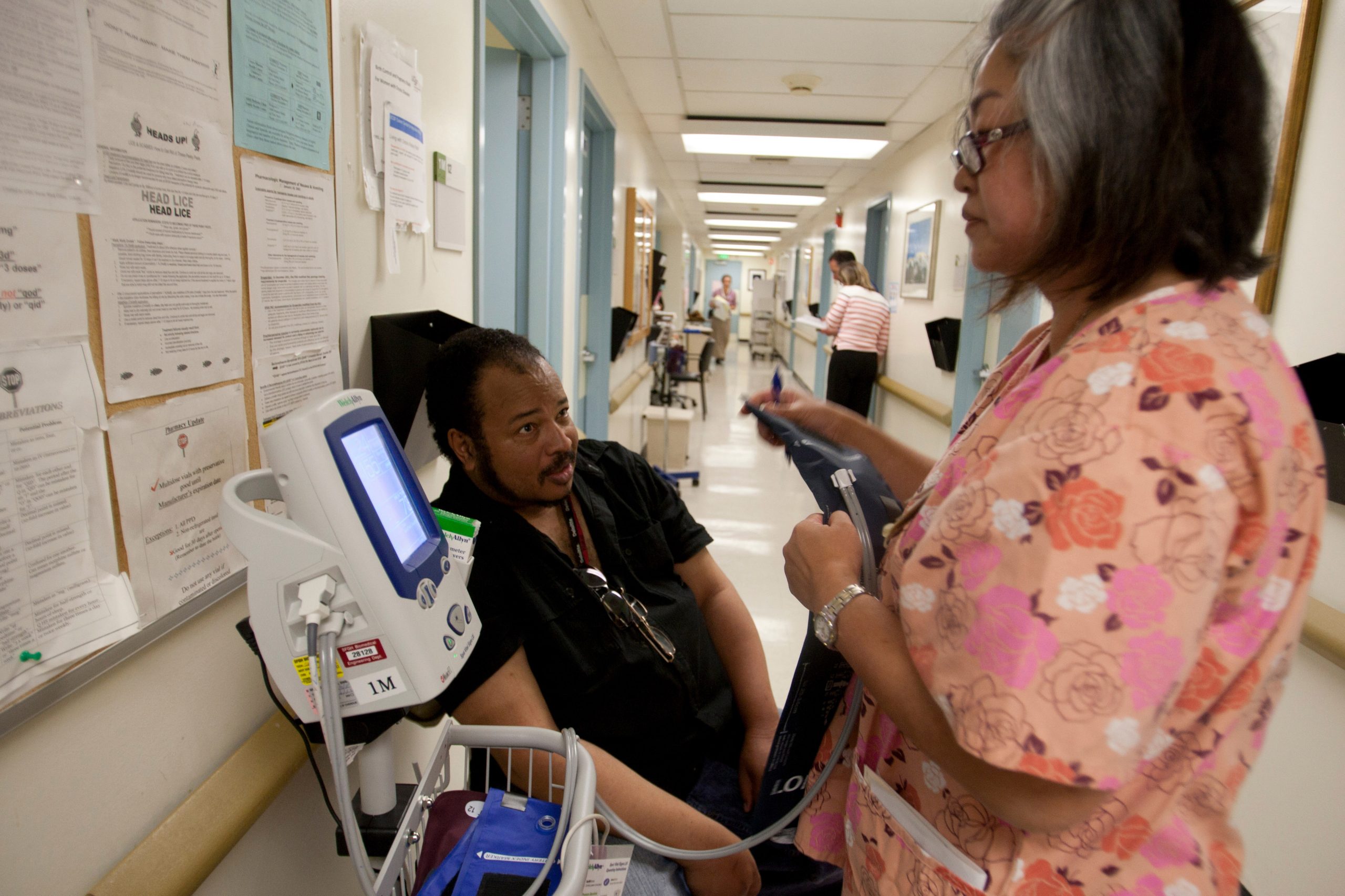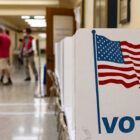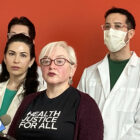Anticipating the worst, San Francisco officials are laying groundwork for dealing with the incoming Trump administration.
The Board of Supervisors has created a Federal Select Committee, charged with strategizing the city’s defense against any threatening federal policies. Supervisor Malia Cohen will chair that committee, along with the Budget and Finance Committee. Joining her on the nascent panel will be two of the newest supervisors — Sandra Fewer (District 1) and Jeff Sheehy (District 8).
Cohen cited several policies and programs that she will be looking to guard: San Francisco’s sanctuary city law, which helps shield undocumented immigrants from deportation; homelessness services, including temporary shelters and permanent supportive housing; and low-income housing tax credits.
In addition, one of her primary goals will be to mitigate the local damage caused by the looming repeal of the Patient Protection and Affordable Care Act, commonly known as Obamacare. Both houses of the Republican-controlled Congress took steps last week to begin repealing the law that took effect in 2010.
Since then, thousands have dropped off the rolls of the city’s own program, called Healthy San Francisco — partly because the federal law required many to purchase insurance instead, and partly because Medi-Cal was expanded to include many more people. The state-run program relies on federal subsidies.
(Read our spring 2012 special report on this city program: “Healthy SF: Who Pays?”)
Healthy San Francisco was created three years before the federal program. Operated by the city’s Department of Public Health, it has provided medical services to city residents who do not qualify for private or public insurance programs, like Medi-Cal or Medicare, or who cannot afford health insurance. It is available to people regardless of their immigration status, employment or pre-existing conditions.
Enrollment topped out at about 54,000 people in fiscal year 2010-2011 and dropped in subsequent years. Today about 14,000 people are enrolled in Healthy San Francisco, said Colleen Chawla, director of policy and planning at the Department of Public Health.
The decline in enrollment has resulted in lower costs, too. In fiscal 2010-2011, the program cost an estimated $177.8 million, with $149.6 million paid by the city and the rest paid by participating hospitals and private medical providers. In the most recent fiscal year, the program cost an estimated $74 million, with the city covering almost $44 million of that, said Chawla, who is still finalizing those estimates with her staff.
The Affordable Care Act did not just expand the pool of privately insured people; it also let more people qualify for Medi-Cal, and it increased federal subsidy to that program. If the act is repealed it is unclear what will happen to Medi-Cal. Will it stay the same? Will federal funding be drastically cut, shifting the burden to California taxpayers? Depending on the answer, Healthy San Francisco could face renewed burden.
Based on the latest published report for Healthy San Francisco, for fiscal 2014-2015, most enrollees are between the ages of 24 and 44, and most are at or below the federal poverty line, which in 2015 was drawn at an annual income of $11,770 for single-person household. More than 50 percent live in the Mission District, Excelsior and Bayview-Hunters Point neighborhoods.
Cohen said that, depending on what the Trump administration and Congress do, the Federal Select Committee might consider expanding Healthy San Francisco to replace services that residents may lose when the Affordable Care Act is dissolved. The program might also shift its eligibility requirements so that more people can join.
“What does that look like, where does that money come from?” Cohen asked. The Federal Select Committee will propose answers.
Cohen guessed that the local political climate would be amenable to growing the health care program. But she said that until President-elect Donald Trump takes the oath of office and Congress votes on a replacement, it is premature to talk about specific policy solutions.
“We’re taking our cues from the White House,” Cohen said.
Trump has repeatedly declared that repealing the Affordable Care Act would be at the top of his list after being sworn in Friday (Jan. 20). But he has offered no alternative so far, and neither have Republicans in Congress.
Trump told the Washington Post on Sunday that, after repealing the Affordable Care Act, “We’re going to have insurance for everybody.” He also said he would not cut benefits to Medicare, which covers adults with disabilities and seniors who are 65 and older. But in an interview that same day on ABC’s This Week with George Stephanopoulos, Trump’s chief of staff, Reince Priebus, was less clear about whether Medicaid would face cuts. Medi-Cal is California’s Medicaid program.
“What about Medicaid?” Stephanopoulos asked. “Repealing Obamacare would cut Medicaid.”
“Well, look,” Priebus said, “those are things that we’re going to be discussing over the next several weeks.”
San Francisco relies on federal funding to provide many of its services. The city’s fiscal 2016-2017 budget is $9.6 billion.
“We get about $450 million directly from the federal government, plus about another billion from the state,” said Conor Johnston, chief of staff board President London Breed, who proposed the committee’s creation to the board. Johnston noted that much of the state money has origins at the federal level.
But which city programs rely most heavily on federal money? Analysts at the Controller’s Office have yet to dive that deep into the data, Johnston said, and the Federal Select Committee could direct them to do so before long. The committee could then propose defensive strategies to protect endangered programs, such as using discretionary funds to fill new vacuums.
The need for the committee became apparent on election night, which left Breed’s team with mixed emotions, Johnston said. Breed had been reelected to the District 5 supervisor seat, but Trump had defeated Hillary Clinton.
“We all recognized there were going to be some ominous movements coming out of Washington,” Johnston said. “People in our communities are scared about what this means.
“It’s incumbent upon San Francisco and the Board of Supervisors to be a leader, stand up for our community, for our values.”










